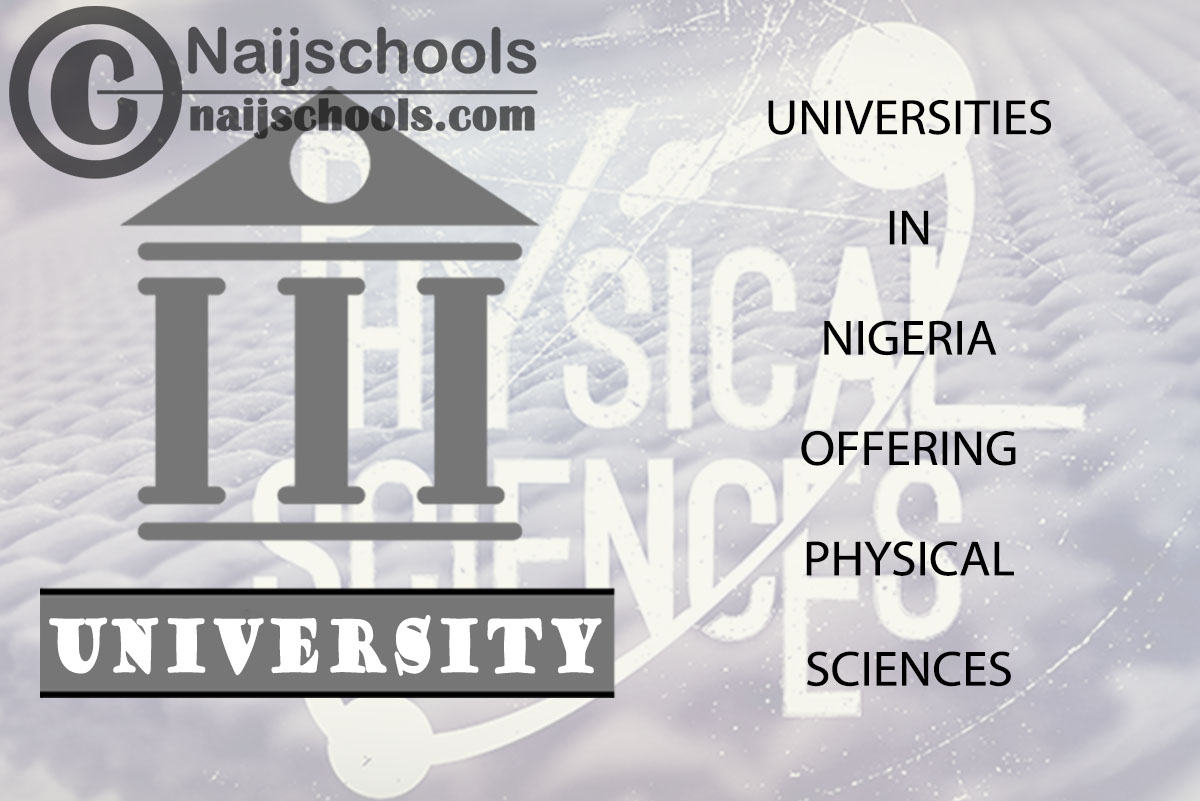If you are looking for universities in Nigeria offering physical sciences, here is the right place for you, as this article will cover what physical science is all about and the prospective job opportunities.
To begin with, Physical sciences encompass physics, chemistry, astronomy, geology, and meteorology, focusing on understanding non-living systems and phenomena.
Physics explores matter and energy interactions, including mechanics, electromagnetism, and quantum mechanics.
- Chemistry studies the composition, structure, and reactions of substances.
- Astronomy delves into celestial objects and the universe.
- Geology examines Earth’s structure, composition, and processes.
- Meteorology studies atmospheric phenomena and weather patterns.
These sciences contribute to technological advancements, from new materials to space exploration, and address practical challenges such as natural hazards. Researchers in physical sciences work across academia, industry, and government, advancing knowledge and improving society.
Those who hold a degree in physical sciences may work in the following research: scientists, engineers, educators, data analysts, and consultants in industries such as aerospace, pharmaceuticals, environmental science, and technology. See the next section for a list of schools that offer this course.
Private Universities in Nigeria Offering Physical Sciences
No public institution offers this course; even among private institutions, only one private university in Nigeria provides it, leaving students who wish to study this course in Nigeria with no other option.
- Godfrey Okoye University, located at Ugwuomu- Nike P.M.B. 01014 Thinkers’ Comer, Enugu, Nigeria
Conclusion
In conclusion, only one university in Nigeria offers physical sciences, leaving students with no choice when selecting a university.
We also see that the physical sciences course provides a comprehensive exploration of fundamental principles governing the natural world with diverse career opportunities in research, engineering, education, data analysis, and consultancy across industries like aerospace, pharmaceuticals, and environmental science.
Lastly, graduates are equipped to contribute to technological advancements and address real-world challenges.
Reference
Also, Check Out;
- Full List of Universities in Nigeria Offering Plant Science & Forestry
- Full List of Universities in Nigeria Offering Plant Biology
- Full List of Universities in Nigeria Offering Plant Science

